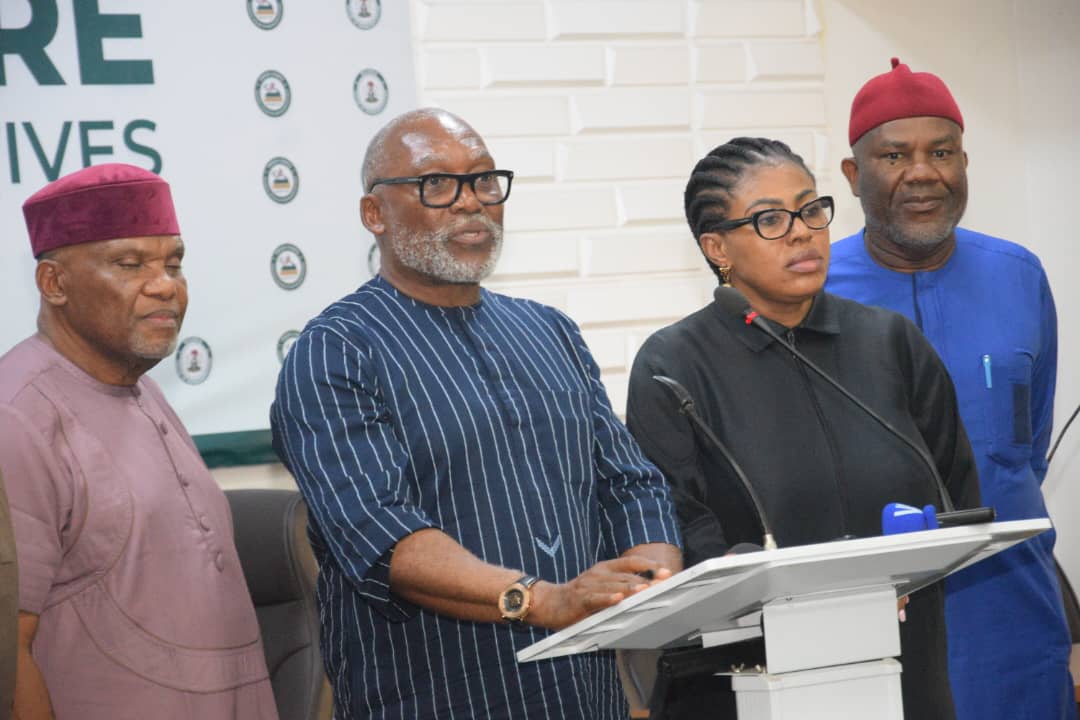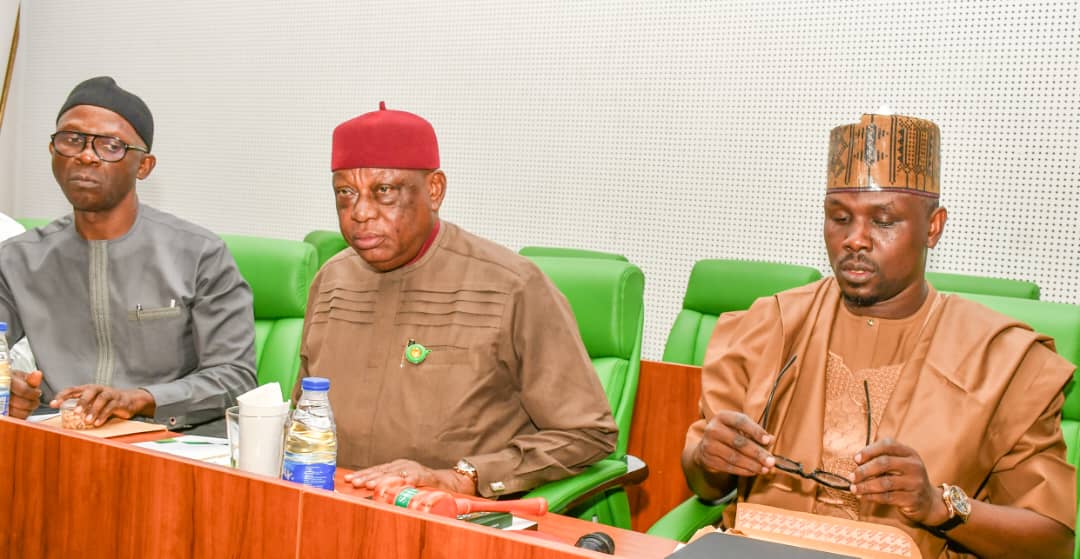News
How I tried to stop Onakoya from playing chess – World record breaker’s father

By Kayode Sanni-Arewa
The father of Nigerian chess master, Tunde Onakoya, Pa Onakoya, has said that he was never in support of his son playing chess, stating that he never knew that Chess would make him popular.
According to him, when Tunde was a child, whenever he saw him playing chess, he would pack everything away because he wanted him to focus on his academics.
On April 17, Onakoya commenced his attempt to break the Guinness World Record for the longest chess marathon.
On April 20, he broke the record for the longest-ever chess marathon with a time of 60 hours at Times Square in New York, United States.Reacting to Tunde’s success in a video shared on Oyindamola’s X handle on Wednesday, his father described the Chess master as a resilient person.
He said, “To me, Babatunde Onakoya is an angel because whatever he set his mind on must succeed.“As a small child, when Tunde was playing chess, I usually packed everything away from him because I wanted him to focus on school. I didn’t know that it was what would make him popular like this.
News
South-East Caucus Urges NAFDAC to Reopen Onitsha Medicine Market, Target Offenders

By Gloria Ikibah
The South East Caucus in the House of Representatives has urged the National Agency for Food and Drug Administration and Control (NAFDAC) to reconsider the closure of the Onitsha Bridgehead Medicine Market in Anambra State.
Leader of the caucus, Rep. Igariwey Enwo, who made the plea at a press conference on Tuesday in Abuja, strongly cocondemned the activities of traders dealing in fake and substandard drugs, and said the continued lockdown of the market was having widespread negative effects.
Naijablitznews.com recalled that NAFDAC had recently sealed over 4,000 shops in Onitsha, 3,027 in Lagos, and another 4,000 in Aba as part of its nationwide crackdown on counterfeit and substandard medicines.
The Agency last week had said the markets remains lockdown.
Rep. Igariwey denounced those involved in the sale and distribution of fake and adulterated medications, describing them as “merchants of death and economic saboteurs” whose activities not only endanger public health but have also led to loss of lives.
He also commended NAFDAC for taking decisive action against these illegal operators but urged the agency to ensure that innocent and law-abiding traders are not unfairly punished alongside the culprits.
The caucus stressed that sealing the entire market has far-reaching consequences, particularly for medicine users in the South East and South-South regions, where the market serves as a major pharmaceutical hub.
The caucus therefore called for a targeted approach that prosecutes offenders while allowing legitimate businesses to continue operating.
News
Reps Push for National Security Trust Fund to Boost Intelligence Funding

By Gloria Ikibah
The House of Representatives has proposed the establishment of a National Security and Intelligence Trust Fund as a strategic solution to Nigeria’s security funding challenges.
Chairman of House Committee on National Security and Intelligenc, Rep. Ahmad Satomi, stated this at a public hearing on “A BILL FOR AN ACT TO ESTABLISH NIGERIAN SECURITY AND INTELLIGENCE TRUST FUND TO PROVIDE FUNDING FOR SECURITY RELATED ISSUES, APART FROM USUAL BUDGETARY PROVISIONS FROM THE FEDERATION, INTERVENE IN COMBATING SECURITY ISSUES IN NIGERIA AND FOR RELATED MATTERS”, on Tuesday in Abuja.
Rep. Satome who is sponsor of the bill emphasised that the current funding model for intelligence agencies was inadequate.
Rep. Satome stated that while California University operates on a $100 billion budget—30% of which is allocated to research and development—Nigeria’s entire security budget remains significantly lower despite its larger population and pressing security concerns.
According to the piece of legislation, the proposed trust fund is expected to provide alternative financial support for intelligence operations, reducing reliance on annual budgetary allocations. Funding sources for the trust include:
- 1% of the consolidated revenue from the Federation Account.
- Airspace revenue generated from Nigeria’s airspace.
- Unclaimed funds (still under debate due to constitutional concerns).
- Donations and gifts (some stakeholders suggest removing this option to prevent corruption).
The bill is seen as a crucial step toward strengthening Nigeria’s security architecture by ensuring sustainable and efficient funding for intelligence agencies.
News
Reps Push for More Colleges Of Education to Strengthen Nigeria’s Education Sector

The Speaker House of Representatives, Rep. Tajudeen Abbas, has stated that despite the 205 colleges of education which included federal, state, and privately owned is insufficient to address the country’s educational needs.
Speaking at a public hearing in Abuja on Tuesday, the Speaker emphasised that the rising demand for education in Nigeria makes it necessary to establish more colleges of education.
The Speaker who noted that human capital is the foundation of any society’s development, explained that while material resources are valuable, they remain untapped unless harnessed through human knowledge, skills, and innovation to drive national progress, social mobility, and economic growth.
He further stressed that education was central to human capital development, and a key way to sustain the education system was by continuously producing well-trained and highly skilled teachers for primary and secondary schools.
“To achieve this, we must strengthen teacher education in Nigeria by expanding access to quality institutions that will equip the next generation of educators,” he said.
Speaker Abbas added that the bills under review demonstrate the lawmakers’ collective commitment to ensuring that all regions of the country have fair access to quality teacher education.
According to Abbas, public hearings are a crucial part of the legislative process, giving opportunity for stakeholders to refine proposed bills, and that the discussions would help lawmakers better understand the education sector’s needs and expectations.
He reiterated the commitment of the House to inclusive governance and values stakeholder engagement, and encouraged policymakers, education experts, community leaders, and the public to actively participate by offering insights that could shape policies to strengthen Nigeria’s education system.
Chairman of the House Committee on Colleges of Education, Rep. Adamu Tanko, reaffirmed that education remains the foundation of national development, and assured that the House was committed to ensuring that every Nigerian has access to quality teacher education.
Tanko further highlighted that establishing new federal colleges of education is key to addressing gaps in teacher training, improving the education sector, and building a skilled workforce to drive national development.
He noted that the public hearing provides a platform for policymakers, education experts, and community leaders to engage in meaningful discussions.
House Leader and sponsor of ten related bills, Rep. Julius Ihonvbere, expressed concern over the shortage of qualified teachers in many schools across the country. He stressed the urgency of establishing more teacher training institutions to meet the demand for skilled educators.
Rep. Anamero Dekeri, who is sponsoring a bill to establish the Federal College of Education (Technical) in Ogute-Oke, Okpella, highlighted the importance of technical education in driving national development. Representing Etsako Federal Constituency in Edo State, he stated that the proposed institution would harness the area’s potential and contribute to workforce development.
-

 Metro19 hours ago
Metro19 hours agoGunmen attack Edo farming communities kill dozens, destroy properties
-

 Metro19 hours ago
Metro19 hours agoMan takes girlfriend’s life while beating her
-

 News14 hours ago
News14 hours agoSEE Black Market Dollar To Naira Exchange Rate Today 26th February 2025
-

 News14 hours ago
News14 hours agoJust in: David Setonji May Become New LSHA Speaker Meranda To Step Down
-

 News10 hours ago
News10 hours agoT-Plan Warns About Rising Drug Addiction Among Youths, Housewives
-

 News18 hours ago
News18 hours agoNigeria ‘ll soon get accurate headcount as Tinubu sets up Census Committee
-

 News14 hours ago
News14 hours ago2027: APC hammers El-Rufai over att@ck on Tinubu, Ribadu
-

 News18 hours ago
News18 hours agoIBB in his controversial book narrates how he met his wife, Maryam







